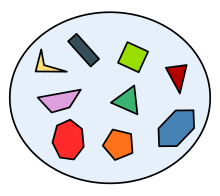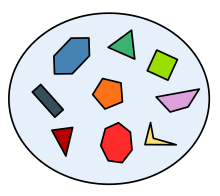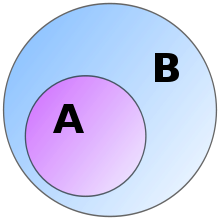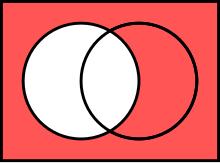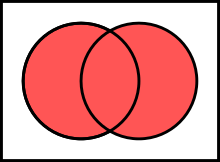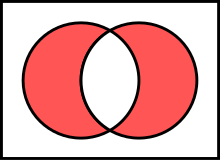No coordinates found
Set (mathematics)
Collection of mathematical objectsIn mathematics, a set is a collection of different things; these things are called elements or members of the set and are typically mathematical objects of any kind: numbers, symbols, points in space, lines, other geometrical shapes, variables, or even other sets. A set may have a finite number of elements or be an infinite set. There is a unique set with no elements, called the empty set; a set with a single element is a singleton.
Read article
Top Questions
AI generatedMore questions
Timeline
AI Generated- 1878The continuum hypothesis is formulated by Georg Cantor.
- 1908The set notation is introduced by Ernst Zermelo.
- 1963Paul Cohen proves that the continuum hypothesis is independent of the axiom system ZFC.
